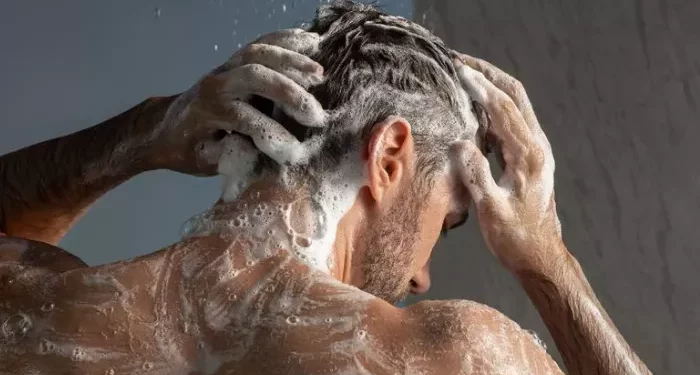Fungal infections on the scalp are more common than many people think. They can lead to various scalp conditions, including itching, dandruff, hair loss, and redness. These infections are typically caused by a type of fungus known as dermatophytes or yeasts, which thrive in warm, moist environments. The good news is that there are shampoos specifically formulated to kill fungi on the scalp and promote healthy skin. In this article, we will discuss what kills fungus on scalp shampoo, the ingredients that make these shampoos effective, and how to choose the right shampoo for your needs.
Understanding Fungal Infections on the Scalp
Before we dive into the best shampoos for fungal infections, it’s important to understand what causes these infections. The most common fungal scalp infections are:
Dandruff: Caused by the Malassezia yeast, dandruff can result in flaking, itching, and redness.
Ringworm (Tinea Capitis): This is a more severe fungal infection that affects the scalp. It can cause scaly patches, hair loss, and inflammation.
Seborrheic Dermatitis: This is a chronic condition caused by an overgrowth of yeast on the skin. It leads to greasy scales, flaking, and redness on the scalp.
Folliculitis: Fungal folliculitis can occur when hair follicles become infected with fungus, leading to small, itchy pimples or pustules.
Fungal infections thrive in environments that are warm, moist, and oily. Therefore, the scalp is a prime location for fungal growth, especially if proper hygiene is not maintained.
Key Ingredients That Kill Fungus on the Scalp
Shampoos designed to treat fungal infections typically contain active ingredients that target and kill the fungi. These ingredients are formulated to be effective against various types of fungal infections without irritating the scalp or causing further damage. Here are some key ingredients to look for:
1. Ketoconazole
Ketoconazole is one of the most effective antifungal ingredients commonly found in shampoos. It works by inhibiting the growth of fungi, particularly the Malassezia yeast, which is the primary cause of dandruff and seborrheic dermatitis. Ketoconazole is effective against both yeast and dermatophyte fungi, making it a powerful weapon against a variety of scalp fungal infections. Shampoos containing ketoconazole help reduce inflammation and flaking, providing relief from itching and irritation.
2. Selenium Sulfide
Selenium sulfide is another common ingredient used in anti-fungal shampoos. It works by reducing the production of skin cells and controlling the growth of fungi on the scalp. This ingredient is particularly effective against seborrheic dermatitis and dandruff caused by Malassezia. Selenium sulfide can also help alleviate symptoms like itching, redness, and excessive oiliness on the scalp.
3. Zinc Pyrithione
Zinc pyrithione is a broad-spectrum antimicrobial agent that is often included in shampoos designed to treat dandruff and fungal infections. It works by inhibiting the growth of fungi and bacteria, which helps to keep the scalp clean and healthy. Zinc pyrithione is effective against a range of fungal infections, including those caused by Malassezia. It also has soothing properties, which can help reduce inflammation and irritation.
4. Tea Tree Oil
Tea tree oil is a natural antifungal agent that has been used for centuries to treat various skin conditions, including fungal infections. It contains terpenes, which have antimicrobial and antifungal properties. Tea tree oil can help kill fungi on the scalp, reduce dandruff, and soothe irritation. It is often included in shampoos that aim to treat fungal scalp infections due to its gentle yet effective action.
5. Coal Tar
Coal tar is an ingredient that has been used for many years to treat scalp conditions like seborrheic dermatitis and dandruff. While it may not be as commonly found in modern shampoos, it is still an effective antifungal agent. Coal tar works by slowing down the growth of skin cells, which helps to control the overgrowth of fungi. It also reduces inflammation and can help relieve itching and irritation.
6. Climbazole
Climbazole is another antifungal ingredient that is becoming increasingly popular in shampoos designed to treat fungal infections. It works by targeting and killing fungi, particularly the Malassezia species. Climbazole is effective at reducing dandruff and seborrheic dermatitis, and it also helps to restore the scalp’s natural balance. This ingredient is gentle on the skin and can provide relief from the symptoms of fungal infections.
7. Terbinafine
Terbinafine is an antifungal agent that is often used to treat dermatophyte infections, such as ringworm. While it is more commonly used in oral medications, it can also be found in certain shampoos. Terbinafine works by inhibiting the synthesis of ergosterol, a key component of the fungal cell membrane. By disrupting the cell membrane, terbinafine effectively kills the fungus and prevents it from spreading.
How to Choose the Right Shampoo for Fungal Infections
When choosing a shampoo to treat fungal infections on the scalp, there are several factors to consider. The right shampoo for you will depend on the type of fungal infection, the severity of your symptoms, and your skin’s sensitivity. Here are some tips to help you make the best choice:
1. Consider the Active Ingredient
As mentioned earlier, certain ingredients are more effective against different types of fungi. If you are dealing with dandruff or seborrheic dermatitis, shampoos containing ketoconazole, selenium sulfide, or zinc pyrithione may be your best bet. If you are suffering from a more severe fungal infection like ringworm, shampoos with terbinafine or climbazole may be more effective. Always check the label for the active ingredients and consult with a dermatologist if you are unsure.
2. Look for Soothing Properties
In addition to killing fungi, it is important to choose a shampoo that will not irritate your scalp. Look for shampoos that contain soothing ingredients like aloe vera, chamomile, or tea tree oil. These ingredients can help reduce inflammation, redness, and itching, which are common symptoms of fungal infections.
3. Check for Scalp-Cleansing Formulas
Some shampoos are formulated to cleanse the scalp of excess oils and dead skin cells. These can be especially helpful if your fungal infection is exacerbated by oily or clogged pores. A shampoo with gentle exfoliating properties can help remove buildup and prevent further fungal growth.
4. Avoid Harsh Chemicals
Many conventional shampoos contain harsh chemicals that can dry out the scalp and worsen symptoms. When choosing a shampoo for fungal infections, it is important to avoid products that contain sulfates, parabens, or artificial fragrances. These chemicals can strip the scalp of its natural oils and cause further irritation.
5. Consider Your Hair Type
If you have sensitive skin or fine hair, opt for a mild antifungal shampoo that is designed for sensitive skin. Some antifungal shampoos can be drying, so it is important to choose one that suits your hair type and texture. If you have color-treated or dry hair, look for a moisturizing formula to prevent further dryness and damage.
How to Use Fungal Shampoo Effectively
Using the right shampoo is essential for treating a fungal infection, but how you use it is just as important. To get the most out of your antifungal shampoo, follow these steps:
Wet Your Hair Thoroughly: Before applying the shampoo, make sure your hair and scalp are completely wet. This will help the shampoo lather and penetrate your scalp more effectively.
Apply the Shampoo: Massage the shampoo into your scalp, focusing on the areas that are affected by the fungal infection. Be gentle when massaging to avoid irritating the scalp.
Leave the Shampoo on for the Recommended Time: Many antifungal shampoos require you to leave them on your scalp for a few minutes to allow the active ingredients to work. Follow the instructions on the label for the best results.
Rinse Thoroughly: After the recommended time has passed, rinse your hair thoroughly to remove all traces of the shampoo. Leaving the shampoo on for too long can irritate your scalp.
Repeat Regularly: For optimal results, use the shampoo as often as recommended. This may be daily or several times a week, depending on the severity of the infection.
Conclusion
Fungal infections on the scalp can be frustrating and uncomfortable, but the right shampoo can provide relief. Shampoos containing antifungal ingredients like ketoconazole, selenium sulfide, and zinc pyrithione can help kill the fungi responsible for conditions like dandruff, ringworm, and seborrheic dermatitis. By choosing a shampoo that suits your needs and using it correctly, you can effectively combat fungal infections and maintain a healthy scalp.
If you have persistent or severe fungal infections, it is always a good idea to consult with a dermatologist for personalized advice and treatment.
Related topics



























